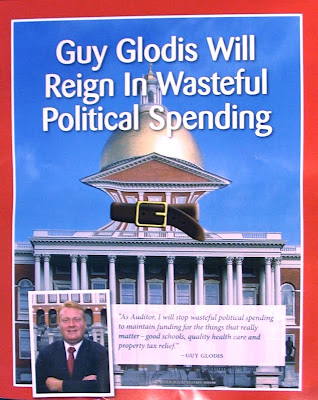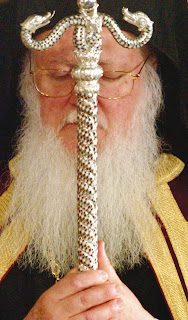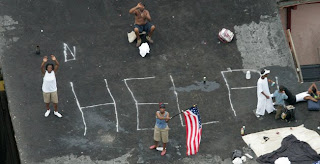Earl Updates
Report as of 9:00am 3 September 2010
Earl has weakened overnight to a Category 2 storm, with sustained winds of 105 mph. Its current location is near 35.3N, 74.0W, moving NNE at 18 mph. Earl’s projected path has shifted to the east, but still brings it within 100 miles of Nantucket Friday evening as a Category 1 or weak Category 2 hurricane. Tropical storm force winds are expected to arrive in southeastern MA this afternoon and persist through early Saturday morning. Hurricane force wind gusts are possible on the outer Cape and Nantucket. 2 to 4 inches of rain are possible on the Cape and Islands, with 1 to 3 inches of rain forecast in the rest of southeastern MA, with isolated amounts of 6 inches possible on the Cape and Islands. Flash flooding is possible in urban and poor drainage areas, but main stem rivers are not anticipated to flood. Storm surge is not expected to be a major issue as the storm will be passing Massachusetts after high tide, but high surf and rip currents will persist along the Massachusetts coast through Saturday and possibly into Sunday.
Over the past 48 hours, local, state, Federal, voluntary, and private-sector organizations have engaged in extensive pre-planning for this event. Personnel, commodities, and resources have been located and pre-positioned to assist in mass sheltering, debris clearance, search and rescue, and damage assessment. The State Emergency Operations Center (SEOC) in Framingham was activated at 7:00 am today and will remain activated 24/7 until further notice.
Report as of 9:00am 2 September 2010
NWS reports that Hurricane Earl is now a Category 4 hurricane. Earl currently has maximum sustained winds of 145mph. Its current location is near 30.1N, 74.8W, moving NNW at 18mph. Earl’s projected path now brings it approximately 22 miles SE of Nantucket late Friday into early Saturday morning potentially as a Category 3 storm. On this track (note: the margin for error can be 200 miles), the impacts remain high surf and rip currents, with expected issues for swimmers and boaters, starting today and going through Saturday. 10-20’ seas are expected left of the eye, with 30-40’+ seas right of the eye as it passes our area. Expect rainfall throughout the day on Friday (heaviest between noon & midnight) of 2-4” are expected throughout the eastern 1/3 of MA. There will also be a yet-to-be-determined axis of 4-8” that could fall in that region. Urban street, poor drainage area and small stream flooding is possible. This is an issue for campgrounds and low-lying areas. There may also be the potential of minor/moderate flooding in a number of rivers on Saturday/Sunday. Presently, Earl expects to pack hurricane force winds on the Cape and Islands. Tropical storm force winds may reach interior SE MA. Tree damage and power losses may be an issue. Storm surge could be an issue with the Friday 7-8:00 p.m. high tide on Nantucket & Martha Vineyard. A more westerly track will obviously have greater impacts statewide.
MEMA Offers Tips as Hurricane Earl Approaches
September is National Preparedness Month
Taking Action to Be Ready
By Darryl J. Madden, Director, Ready Campaign
1 September ~ World Environment Day
Happy New Year!
For the maintenance of their armed forces, the Roman emperors decreed that their subjects in every district should be taxed every year. This same decree was reissued every fifteen years, since the Roman soldiers were obliged to serve for fifteen years. At the end of each fifteen-year period, an assessment was made of what economic changes had taken place, and a new tax was decreed, which was to be paid over the span of the fifteen years. This imperial decree, which was issued before the season of winter, was named Indictio, that is, Definiton, or Order. This name was adopted by the emperors in Constantinople also. At other times, the latter also used the term Epinemisis, that is, Distribution (Dianome). It is commonly held that Saint Constantine the Great introduced the Indiction decrees in A.D. 312, after he beheld the sign of the Cross in heaven and vanquished Maxentius and was proclaimed Emperor in the West. Some, however (and this seems more likely), ascribe the institution of the Indiction to Augustus Caesar, three years before the birth of Christ. Those who hold this view offer as proof the papal bull issued in A.D. 781 which is dated thus: Anno IV, Indictionis LIII -that is, the fourth year of the fifty-third Indiction. From this, we can deduce the aforementioned year (3 B.C.) by multiplying the fifty-two complete Indictions by the number of years in each (15), and adding the three years of the fifty-third Indiction. There are three types of Indictions: 1) That which was introduced in the West, and which is called Imperial, or Caesarean, or Constantinian, and which begins on the 24th of September; 2) The so-called Papal Indiction, which begins on the 1st of January; and 3) The Constantinopolitan, which was adopted by the Patriarchs of that city after the fall of the Eastern Empire in 1453. This Indiction is indicated in their own hand on the decrees they issue, without the numeration of the fifteen years. This Indiction begins on the 1st of September and is observed with special ceremony in the Church. Since the completion of each year takes place, as it were, with the harvest and gathering of the crops into storehouses, and we begin anew from henceforth the sowing of seed in the earth for the production of future crops, September is considered the beginning of the New Year. The Church also keeps festival this day, beseeching God for fair weather, seasonable rains, and an abundance of the fruits of the earth. The Holy Scriptures (Lev. 23:24-5 and Num. 29:1-2) also testify that the people of Israel celebrated the feast of the Blowing of the Trumpets on this day, offering hymns of thanksgiving. In addition to all the aforesaid, on this feast we also commemorate our Saviour’s entry into the synagogue in Nazareth, where He was given the book of the Prophet Esaias to read, and He opened it and found the place where it is written, “The Spirit of the Lord is upon Me, for which cause He hath anointed Me…” (Luke 4:16-30).
Cremation, an Orthodox Perspective
Why Orthodox Christians Are Not Cremated
The Divine Liturgy ~ Vestments, The Colors
There are many varied traditions that one can find on what colors to wear at different times of the Church year. There are two major influences, Slavic and Greek. The Arabic is an influence but not as strong as the other two. Here in Southbridge we are influenced by the Greek tradition. Hard to believe that the Romanian Orthodox Church is Greek influenced but the common misconception is that Romanian is a Slavic country, but Romania is Latin so the West has also had a great influence on the Church.
In the Byzantine or Greek tradition there are two basic colors of vestments, Bright and Dark. All a priest really needs is to have one bright, usually white, and one dark usually purple. With these two vestments you can serve any Liturgy during the Church year. The Orthodox Church does not have hard and fast rules on vestment colors like the Western Church does. Some have adopted a much more complex scheme that would follow more of the Russian or Slavic style. I tend to follow the Slavic style myself.
In the Slavic Tradition there are six different seasons or color schemes:
1. Feasts of Our Lord Jesus Christ ~ Gold
2. Feast of the Theotokos ~ Light Blue or White
3. Feasts of the Cross ~ Purple or Dark Red
4. Feasts for Martyrs ~ Red
5. Feasts of Monastic Saints ~ Green
6. Lent ~ Dark Color, Purple
White is worn for the fests and post feasts of Epiphany, Transfiguration, and Pascha. It can also be worn on Christmas. White is also used for Funerals and all Sacraments.
Green is worn for Pentecost, feasts of the Prophets and Angels, Elevation of the Holy Cross and Palm Sunday. Green is also worn from Pentecost until Ss. Peter and Paul fast.
Gold is worn from Christmas to Epiphany and in some places during advent, although I wear purple or Red. Gold is also worn on all Sunday’s unless white is worn.
Red is worn for Ss. Peter and Paul, Advent, the Angels, Elevation of the Cross and feasts of Martyrs.
Blue is worn for all feasts of the Theotokos.
Purple is worn on weekends in Lent, black can be worn for weekdays. I wear purple during Lent as I do not have a black vestment.
So as you can see there is much variation even within the Slavic practice. Again there is no hard and fast rule as to what one needs to wear or that the altar cloth and other cloths match the vestments. The one rule is that the Vestments should be clean and free of holes and other such sign of wear.
In the end the local custom of the parish or of the priest of Diocese will dictate what is worn when.
Hurricane Earl
Katrina +5 ~ A Reflection
Photo Courtesy of Yahoo.com



